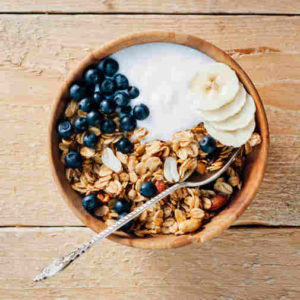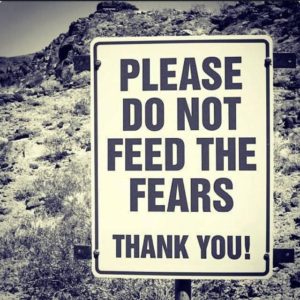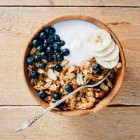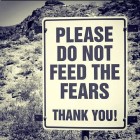Tag Archives:nutrition
Podcast: Optimizing Brains by Dr. Kristen Allott, Naturopathic Physician share
I am a big fan of Dr. Allot’s work. I have been providing her information to my clients for years now, and it has played a significant role in how I work with clients who come to me with anxiety, depression, and ADHD-like symptoms. I just discovered that she now has a podcast and is releasing information to the public. I’m excited!!! The bottom line is that providing our bodies regularly with enough nutritious food, namely enough protein and complex carbohydrates can go a long way in helping to bring panic, worry, sadness, and focus/prioritization back into manageable proportions.
I still need to listen to more of them but some of my favorites are:
How What and When You Eat Affects Anxiety – Episode 9 – Optimizing Brains and Bodies
This is an excerpt from a longer seminar in which Dr. Allott explains the physical causes of anxiety , fatigue, agitation, insomnia and sugar cravings. It explains the way your body reacts to the different fuels, or foods, you consume throughout the day. Instead of addressing food in terms
The Importance of Eating Breakfast – Episode 4 – Optimizing Brains and Bodies
In the April Connectors Group we discussed how to deal with some of the challenges that come up when connecting with friends, family and colleagues.
Experiment: 3 Days of Protein – Episode 10 – Optimizing Brains and Bodies
Studies show that our ability to concentrate, have self control, assess a situation, and creatively problem solve for good decision making is determined in large part by the physical resources our brain . This is an excerpt from a longer seminar in which Dr. Allott explains how
Article: Not Hungry in the Morning - Dr. Kristen Allott, Naturopathic Physician share
 Nutrition is the cornerstone of good mental health. This is why it’s one of the first things I talk with my clients about when they start to work with me. Nobody is perfect, least of all me, but the more conscious we are about making sure to eat at least three meals a day, plus a few healthy snacks, the easier it will be for our mood to be calm and comfortable and out energy level to be active.
Nutrition is the cornerstone of good mental health. This is why it’s one of the first things I talk with my clients about when they start to work with me. Nobody is perfect, least of all me, but the more conscious we are about making sure to eat at least three meals a day, plus a few healthy snacks, the easier it will be for our mood to be calm and comfortable and out energy level to be active.
It’s not unusual, when I start to discuss this with my clients, for folks to tell me, “Well, I’m really not hungry in the morning.” Because breakfast so strongly sets the tone for our bodies for the rest of the day (because of chemical processes that need to be fueled in the morning, as well as other things), this is an issue that we need to tackle together.
In her article, Dr. Allott teaches us about why you actually aren’t feeling hunger, even though your body really does need more food. And, while she explains it in the context of breakfast, this is true for any time that our glucose level (“blood sugar”) goes low and kicks off a process in our liver that taps into our body’s emergency reserves.
PS – While you are on her site, you may want to explore. She has TONS of free resources available that really help to illustrate the connection between nutrition and mood.
Panic Attacks Part 3: Fear of the Fear - Don't Let Panic Attacks Take Over Your Life share
Previous articles in this series:
- Panic Attacks Part 1: What is Panic & Why We Need It
- Panic Attacks Part 2: The Antidote for Panic & Relaxation Breathing
Panic attacks feel very intense when you have them. At best, it’s not a comfortable feeling. At worst, it feels very scary because your body feels like it’s out of control. Some people even worry that they are having a heart attack. If you are experiencing these symptoms for the first time, definitely talk with a medical professional to rule out any medical causes before treating the symptoms as a panic attack. This is important for two reasons. The first is that you need to get a proper diagnosis. The second is that if you are constantly worrying that you are having a heart attack…that’s going to increase your anxiety and make successfully treating panic very difficult.
 Once you know that your body is healthy and ok, it’s time to dig in to the emotional aspects that come into play with panic and anxiety. When you worry too much about the possibility that you might have a panic attack, then this worry itself can become the trigger for your next panic attack. I call this having “fear of the fear (that it will happen again).” With the use of acceptance, information, “growth mindset,” and skill development, here are some guidelines that work against the negative spiral that can happen when people start to develop a “fear of the fear.” This article assumes that you already have started working on developing the skills for turning around a panic attack and is part 3 of a four-part series of articles I hope to complete. Hopefully, I’ll get part 4 up soon!
Once you know that your body is healthy and ok, it’s time to dig in to the emotional aspects that come into play with panic and anxiety. When you worry too much about the possibility that you might have a panic attack, then this worry itself can become the trigger for your next panic attack. I call this having “fear of the fear (that it will happen again).” With the use of acceptance, information, “growth mindset,” and skill development, here are some guidelines that work against the negative spiral that can happen when people start to develop a “fear of the fear.” This article assumes that you already have started working on developing the skills for turning around a panic attack and is part 3 of a four-part series of articles I hope to complete. Hopefully, I’ll get part 4 up soon!
- Recognize that this is a new situation for you and, because of that, it makes sense that it’s hard in the beginning to figure out what’s happening and how best to manage it. Also, know that you’re not alone. There are many people who have or are currently going through this too.You are having, what is called, a panic attack. [Growth Mindset]
- Remember that fight or flight mode is a normal thing that our bodies do. The only problem is that it’s getting triggered when you don’t actually need to respond physically to an emotionally stressful situation. The most important thing to know here is, NO HARM WILL COME TO YOUR BODY AS YOU EXPERIENCE IT (your body physically revving up to fight or flee). It does feel yucky to be in physical panic mode. This is especially true because your body, in that moment, is primed with an abundance of energy to physically react and that means that you experience temporary physical changes to your body (i.e. increased heart rate, quick & shallow breathing, increased blood circulation to muscles, decreased blood circulation to the “rational” part of your brain, and more), but your body naturally knows how to shift out of this mode when the perception of a physical threat is gone. [Watch this great video about how the US government has learned to train Navy SEALS not to panic.]
- Accept that this is not your last panic attack. What I’m saying here is find a way to be ok with knowing that it will happen again AND that should one happen and your growing relaxation and cognitive skills can’t turn it around, you can ride it out until it’s done and be still be ok. In general, the goal is for the panic attacks to start reducing in intensity as you get better at turning them around but this won’t happen if you avoid panic attacks, or things that might cause them, rather than face them. [Acceptance]
- Continue to experiment with and practice various relaxation techniques (relaxation breathing is the most important one for panic) and good self care habits so that you can hone your skills and have more “tools” in your “toolbox” when the need arises. [Skill Development]
- Work on developing cognitive strategies that can help prevent panic attacks from happening or intervene at the early signs of panic so that you can prevent a full blown physical response. [Skill Development]
- Keep a list of things that help turn your panic attacks around so that you can refer to the list the next time. [Skill Development]
- Remembering that low blood sugar, hypoglycemia, can mimic the beginning feelings of a panic attack, carry a healthy snack with you that has a nice combination of protein and complex carbs. [Check out this podcast by Dr. Kristen Allot about why this is so incredibly important.]
- Minimize or, ideally, eliminate caffeine. Drink water. Enjoy water. Did I mention water? [Information]
Remaining article in this series:
- Panic Attacks Part 4: Time To Tune Into Your Early Warning System (coming soon)


